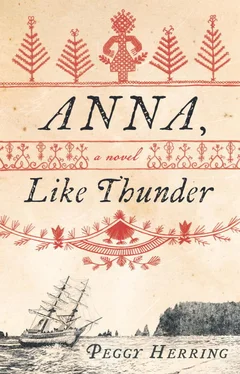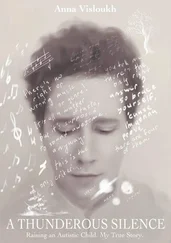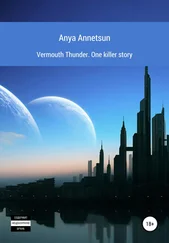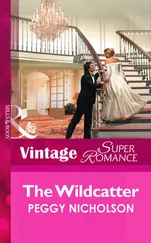My father had the servants carry the bathtub up the staircase and roll it into my bedchamber. They brought bucket after bucket of cold water until it was filled. I heard splash after splash, the servants’ voices subdued.
When it was all ready, my mother said to my father, “I’ll take care of it now.” Her cool hand rested firmly on my forehead.
I detected my father’s uncertainty. He wouldn’t have completely trusted my mother to comply with the doctor’s orders, and yet, his presence in the room while I bathed would have been unthinkable.
“Are you sure you heard the doctor correctly?” my father said.
“I did.” She rose from my side and I heard her footsteps moving toward the door.
“You can’t lift her into the bath tub. She’ll be too heavy for you.”
“I can do it.” The latch clicked as my mother closed the door softly behind him.
No poultice of rotting fish was applied to the rash. I was never plunged into the bathtub. Instead, in the darkened room, my mother whispered to me of a silver cross on a chain. Her lips moved against my ear. She described its arms, the vines and leaves that adorned it, the jewelled flower at its heart. “Now,” she said, “I will tell you what I’m doing with it. Listen.”
She told me that she was dipping the cross in a bowl of water. I heard the splash, heard it knock against the sides of the bowl, heard the drip as she withdrew it. Then she told me she was lighting the wicks of three candles. I smelled the flare of the tallow. She prayed over the candles. “Coffin and grave, thrice I cleanse you,” she said. Next, she told me she was holding the candles over the water one at a time and letting the wax drip into it. Then, I felt the rim of the bowl on my lips.
I sipped the water.
Afterward, she fastened the chain around my neck. The chain was too long for a child and it hung so low no one would ever know I was wearing it. Perhaps that was her intention.
I felt her kneel at my bedside and lean over the mattress. She began to pray.
She prayed for hours, her voice a low rumble of praise, pleas, and promises. When she finally stopped, she said, “Never speak of this night to your father.” She kissed my forehead.
According to my mother, I fell asleep immediately and slept for the entire night. When I woke, my fever was gone, my eyesight had been restored, and I was very hungry. My parents embraced me and for many months afterward, indulged me with whatever I asked for.
As I grew older, and as my father continued teaching me the lessons of the Enlightenment, I dismissed the miraculous cure. It was coincidence. The illness had run its course, and the medicines had worked. While I didn’t share my mother’s view of the world, I knew that arguing would be disrespectful and, moreover, senseless. She’d never allowed enlightened thought to restrain her understanding. I allowed her to believe she’d cured me.
But no amount of rational thought was able to completely chase away the visions. They’d been so vivid and noisy that day, as though they were alive, and I wasn’t certain they weren’t still alive and wouldn’t one day return. My father would have said they were caused by the fever or maybe the medicine, fuelled by a child’s imagination. If we had ever spoken about them, I would have agreed. But just as my mother had warned me, I did not mention anything else about that night to my father.
The sun begins its descent into the sea, and the air has already cooled. My husband shouts orders from the foredeck. Men scramble with the rigging. The horizon swivels until we’re sailing into the setting sun. Is Nikolai Isaakovich deliberately avoiding Destruction Island?
We sail into the dying light, and when the shore is a distant memory, we come to a halt. The wind that has favoured us for so many days has diminished but not died completely. We go to bed in this welcome quiet and wake to an ominous silence. The air is still, heavy as a decision waiting to be made. We’re becalmed. The brig drifts. My husband and the others seem preoccupied, but there’s nothing to be done except to wait for the wind to reappear. It’s irrational to think it won’t.
We pass a dull, windless day, rocked by the sea swell. Zhuchka is restless and petulant, and it comforts neither her nor me when I rub her ears. I polish my telescope and review my star log. I even while away some time embroidering the dinner napkins I brought. The linen was an unexpected gift from the chief manager. He must have paid dearly for it because it was fine and clear, and not the coarse linen that the promyshlenniki sometimes use to make their trousers and shirts. I’m embroidering an elaborate pattern in red and black, with a Б in the centre of one edge on each napkin. After I miss two stitches and must tear apart several rows, I throw my work back into its basket in a fury and sit and wish for the night to arrive. The movement of the stars will be a more gratifying diversion.
Much later, I bundle up under my shawl and take my telescope out on deck. But it’s pointless. The sky is completely overcast. There’s not a hint of wind. The sea is still dead calm and looks to remain that way all night. We pass a second windless night, and the next day, too, until late in that afternoon, Destruction Island comes into sight once more. The swell pushes us to the north of it, and we drift closer and closer to shore. The sails sag uselessly. We need wind. A storm. I chastise myself after this thought arises. We don’t want a storm, do we?
As we helplessly float toward shore, Nikolai Isaakovich calls everyone on deck.
“We should drop anchor right now,” blurts the apprentice Kotelnikov, impetuous as always. My husband’s face barely moves, but I know what he’s thinking.
“Don’t be irrational. It’s still too deep,” drawls the American.
“Well, what about the skiff? Can’t we use the skiff?” Kotelnikov counters, with an urgency that veers toward panic. “The Aleuts could tow us out to sea. What are we waiting for?”
“Ah, but to what end? There’s no wind. How can we row all night?” says Yakov.
“Perhaps we could raise the sails and try?” Sobachnikov squeaks. He takes a tentative step toward the main mast and reaches toward the ratline. “There’s a trace of offshore breeze.” Timofei Osipovich frowns and the others either don’t hear the main rigger or choose to ignore him. His shoulders droop, his face colours, and he steps away from the mast as if he’d never made the suggestion.
“If we can’t get away from shore, we’ll be pushed onto the rocks in the morning,” says John Williams.
“If it takes that long!” says Kotelnikov. “We’ll run aground before midnight.”
Timofei Osipovich remains uncharacteristically quiet.
Finally, Nikolai Isaakovich waves his hand to terminate the discussion. “Here are my orders: we’ll steer through these rocks and reefs as best we can. The sea will determine our speed. As soon as we’re able, we’ll drop anchor, and we must do so before we lose what daylight is left. Then, we’ll wait for the wind to pick up and, if we’re blessed, it won’t blow a gale. I should be able to steer back out through the same course to the open sea, and we’ll resume our voyage.”
“But the rocks,” says Kotelnikov.
“If we can pass them once, it will be a miracle,” says the American. “We’ll have to pass them twice in order to get out.”
An uneasy silence unfolds. No man knows where to look.
“As we all know, he who sits between two chairs may easily fall down,” declares Timofei Osipovich finally. “Unfortunately, that’s where we find ourselves. It’s time to choose a chair. Our navigator is right.” There’s a stirring among the men, and I can’t easily tell which side they’re on. Then I see the tension dissolve from my husband’s face, and I realize he’s convinced them. We’re going to steer through the rocks and anchor as soon as we can.
Читать дальше













